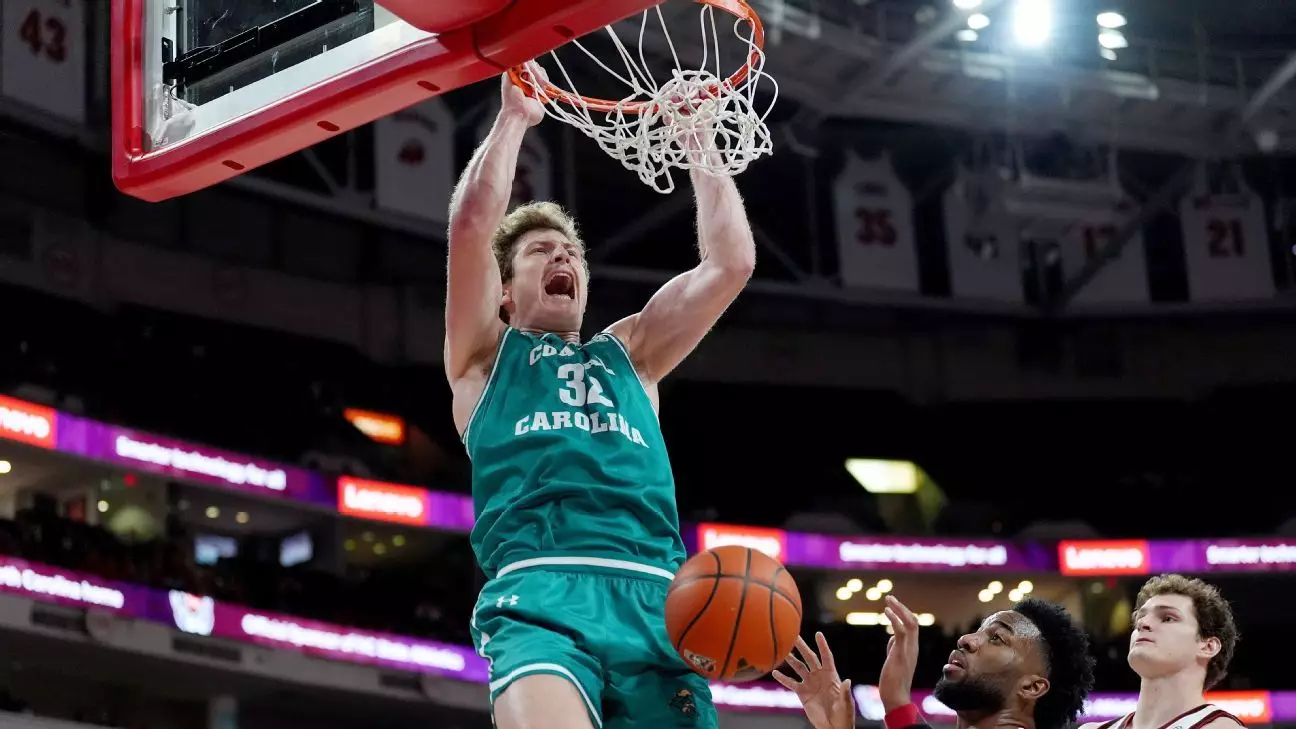The Carolina Panthers have made an intriguing addition to their roster by signing former college basketball player Colin Granger, who stands out at an impressive 6-foot-8 and weighs 245 pounds. Granger is taking a bold leap from the hardwood to the gridiron after a five-year stint at various Division I institutions, a journey that not only speaks to his athletic prowess but also embodies the adventurous spirit of sports transformation. Football, with its complex strategies and physical demands, offers a vastly different landscape than basketball, and for Granger, the challenge is both exhilarating and daunting.
What makes Granger’s transition particularly fascinating is his length of time away from football. Having last played the sport in the eighth grade, one might argue that he is stepping into unknown territory. Yet, this audacity might be exactly what the Panthers need. The coaching staff under Dave Canales, who has already navigated similar projects, is keen to experiment with athletes whose skills outside of football could bring a fresh perspective to the position. It’s an audacious recommendation that questions the traditional pathways of player development and invites us to reconsider what athletic competence really entails.
Analysis of Competition and Opportunities
As Granger embarks on this newly charted course, he finds himself in the midst of an array of established talent competing for the tight end position. Players such as Tommy Tremble and Ja’Tavion Sanders bring experience, yet this can provide Granger with invaluable insight as he learns the ropes. Competing against such diverse skill sets may initially appear overwhelming, but it could also be the perfect crucible for him to refine his abilities quickly. Here lies an opportunity not just for personal growth, but potentially for the entire team to innovate the way they approach offensive plays.
Moreover, the story of Granger resonates with the growing trend in professional sports where teams are more willing to think outside the box when scouting talent. The Panthers’ trust in Granger reflects a shift toward valuing versatile athletes and the broader potential they embody. Drawing from their past experience with George Fant, their historical willingness to integrate marginalized sports backgrounds signifies an engaging shift in player recruitment strategies.
Lessons from the Past
The success of players like Fant, who transitioned from basketball to an impactful NFL career, stands as evidence that backgrounds in other sports can infuse the game with fresh ideas and vigor. Fant, having carved out a reliable position with multiple teams, illustrates that the road can lead to substantial success, not just for the player but also for the franchises that dare to venture into this new territory. His mentorship role with Granger could prove key, creating a bridge that allows Granger to tap into Fant’s years of experience while he finds his footing.
There exists a double-edged sword, however, in such unorthodox acquisitions. While the lack of traditional football experience may hinder Granger at first, his basketball instincts and skills – agility, hand-eye coordination, and strategic spatial awareness – could very well translate into nuanced gameplay that many traditional athletes lack.
In essence, Colin Granger’s move to football is not merely about changing sports; it’s about disrupting the narrative of athlete specialization. The blend of creativity, competitiveness, and innovation that he brings could redefine expectations for future players, shattering long-held beliefs about the confines of athletic potential. The world will watch closely as this monumental transition unfolds, bringing with it the promise of a new paradigm in how we view sports and athletic ability.


Leave a Reply